Fido’s been on his best behavior today. He was a team player during playtime with the neighbor’s dogs and never once tried to jump on the furniture in the house. Now it’s time to give Fido a yummy reward. You glance past the jar of treats — he’s been such a good boy that you want to give him something extra special today, so you open the fridge to see what you have in stock. You give him carrots a lot — mainly to help clean is teeth, so we skip the carrots today, but then you notice…apples! Hmm, I’ve never given my dog apples before… I wonder if he can eat them? Let’s find out!
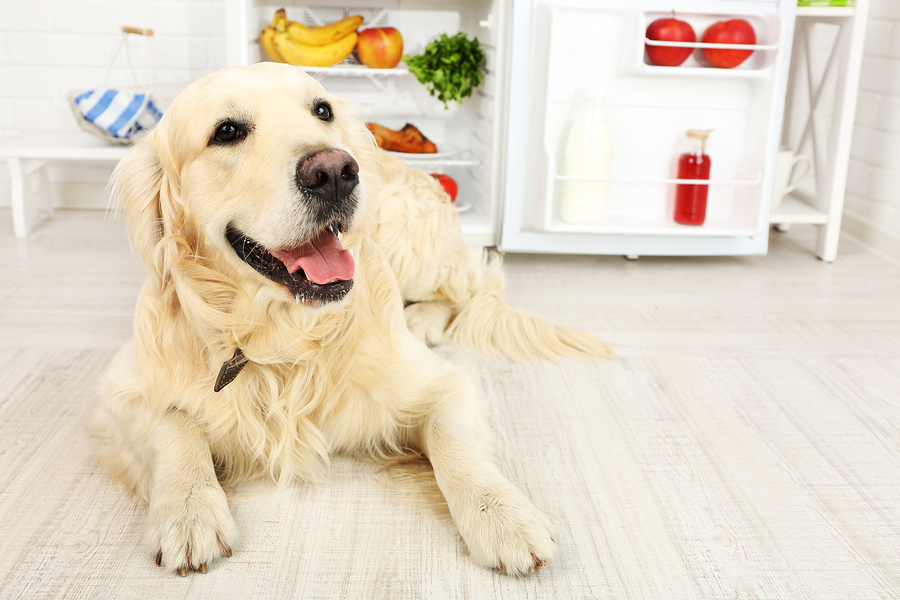
As it turns out, many fruits and vegetables are safe and healthy for dogs and puppies to eat. Dog owners across our social media channels messaged us and even wrote in asking us: Can my dog eat apples? The answer is YES! Not only are apples safe for dogs to eat, but they offer tons of nutritional benefits. In fact, your dog can eat any apple — from Fuji to McIntosh to Granny Smith — any apple is satisfactory.
The health benefits of apples for dogs: Vitamin A and Vitamin C
Not only are these two vitamins power-packed within an apple, but you’ll find your dog’s skin and coat healthier thanks to Vitamin A — which also helps boost the immune system. The Vitamin C found in apples offers puppies in particular proper bone and muscle development.
Editor’s Note: Fat-soluble vitamins like Vitamin A can build up to a toxic level in rare instances. Make sure to consult your veterinarian if you’re considering supplementing your dog’s diet with large amounts of Vitamin A. Remember: Everything in moderation!
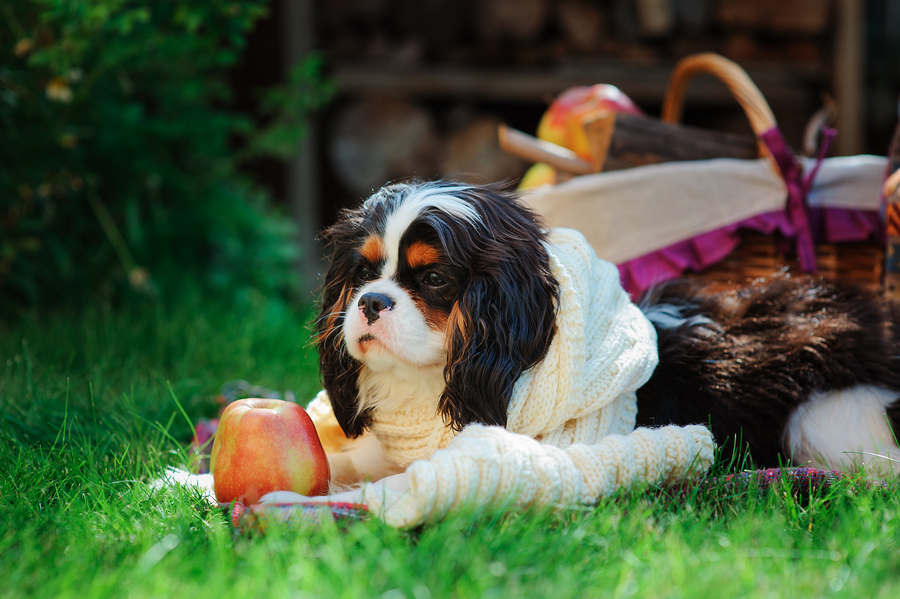
Healthy Poop!
The fiber in apple will aid in your dog’s digestion. Fiber slows the rate that sugar is absorbed into the bloodstream. Fiber is not considered an essential nutrient in your dog’s diet, but it is present in almost every commercial dog food. While dogs do not derive any energy from fiber, adding fiber to a diet improves colon health, helps with weight management, and helps with diarrhea, constipation, and diabetes mellitus.

How to Feed Apples to Your Dog
Make sure to remove the core and the seeds, because the seeds contain bits of cyanide which can be toxic to your dog. Your dog may choose from either red or green apples for his diet and unsweetened applesauce can also work for your dog’s kibble. Dog behaviorist and celebrity, Cesar Milan, suggests offering your pet fresh apple slices (with the seeds removed) which offer an added bonus of cleaning residue off of your dog’s teeth.
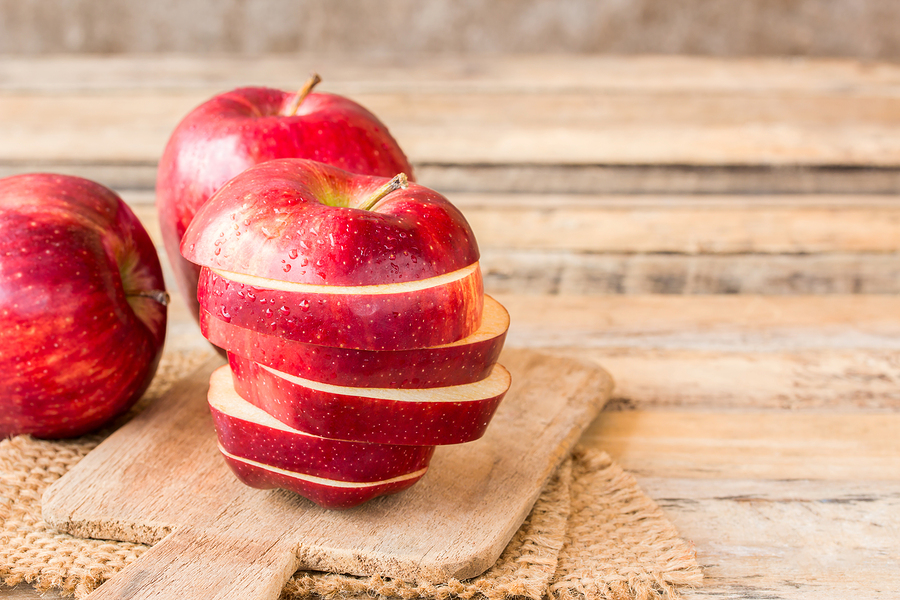
Chubby pup? Apples to the rescue!
Soluble fiber in apples, called pectin, reduces the amount of sugar and calories that’s absorbed into the bloodstream after a meal. That’s good news for folks who want to prevent type 2 diabetes, but it also makes apples one of the best snacks for dieters. Apple pectin prevents spikes in blood sugar that lead to increased fat storage. Just be mindful of your dog’s fruit intake so that he/she is not ingesting too much sugar.
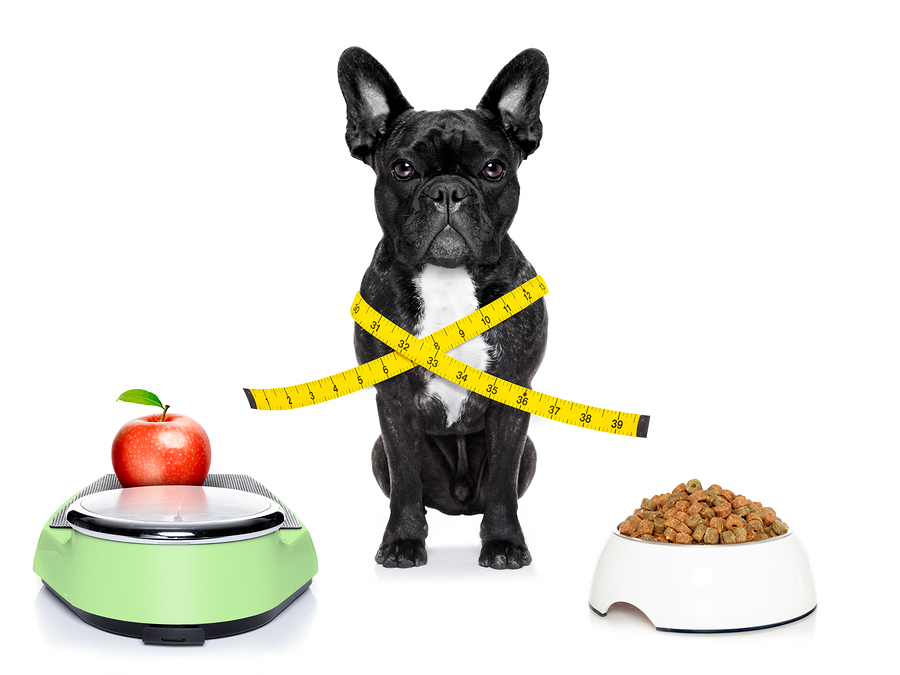
Antioxidants for Gastrointestinal Health
Scientists have now calculated the antioxidant power of the apple is equal to more than 1,500 milligrams of vitamin C. The vast majority of its antioxidants come from flavonoids. Antioxidants are not essential to your dog’s health, however, they lend themselves to good eyesight, bone development, chronic diseases, and more.

Does my dog actually like eating apples?
Yes — absolutely! Just like humans, dogs get tired of eating the same kibble every day. So, why not mix it up with something fresh and nourishing? Dogs especially love the crunchy texture of apples — just as they do carrots.
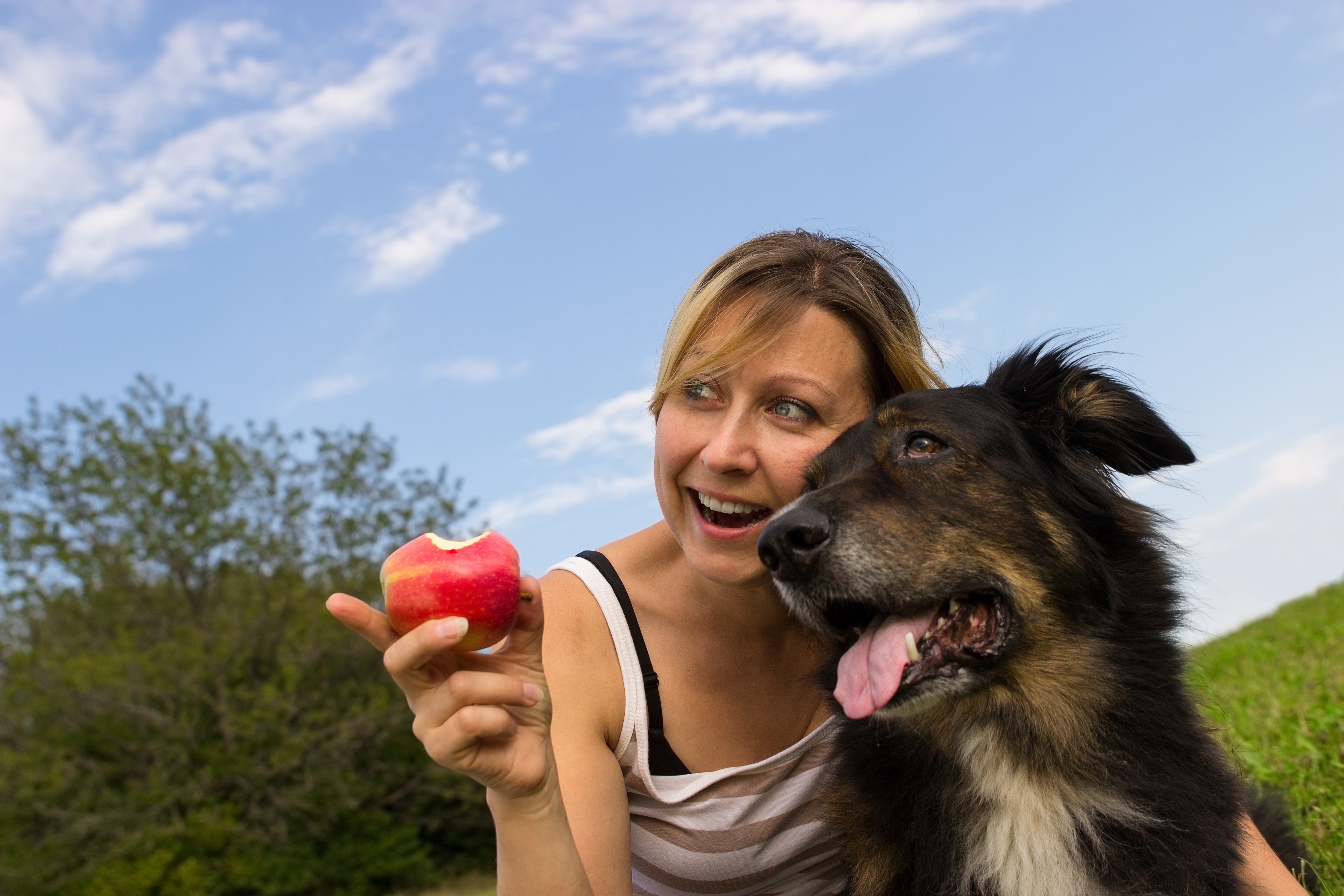
What’s next?
Try offering your dog apple slices or applesauce the next time you have it available and let us know how it went by tweeting us @fetchpetcare. Cheers to a happy and healthy year!


![A happy Fetch! Pet Care client and caregiver [A happy Fetch! Pet Care client and caregiver]](https://fetchpetcare.com/wp-content/uploads/bb-plugin/cache/Imagen1-300x200-landscape-eab2b2598c5471a2e8b7f216eb2fdf09-.jpg)




